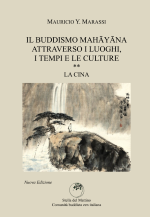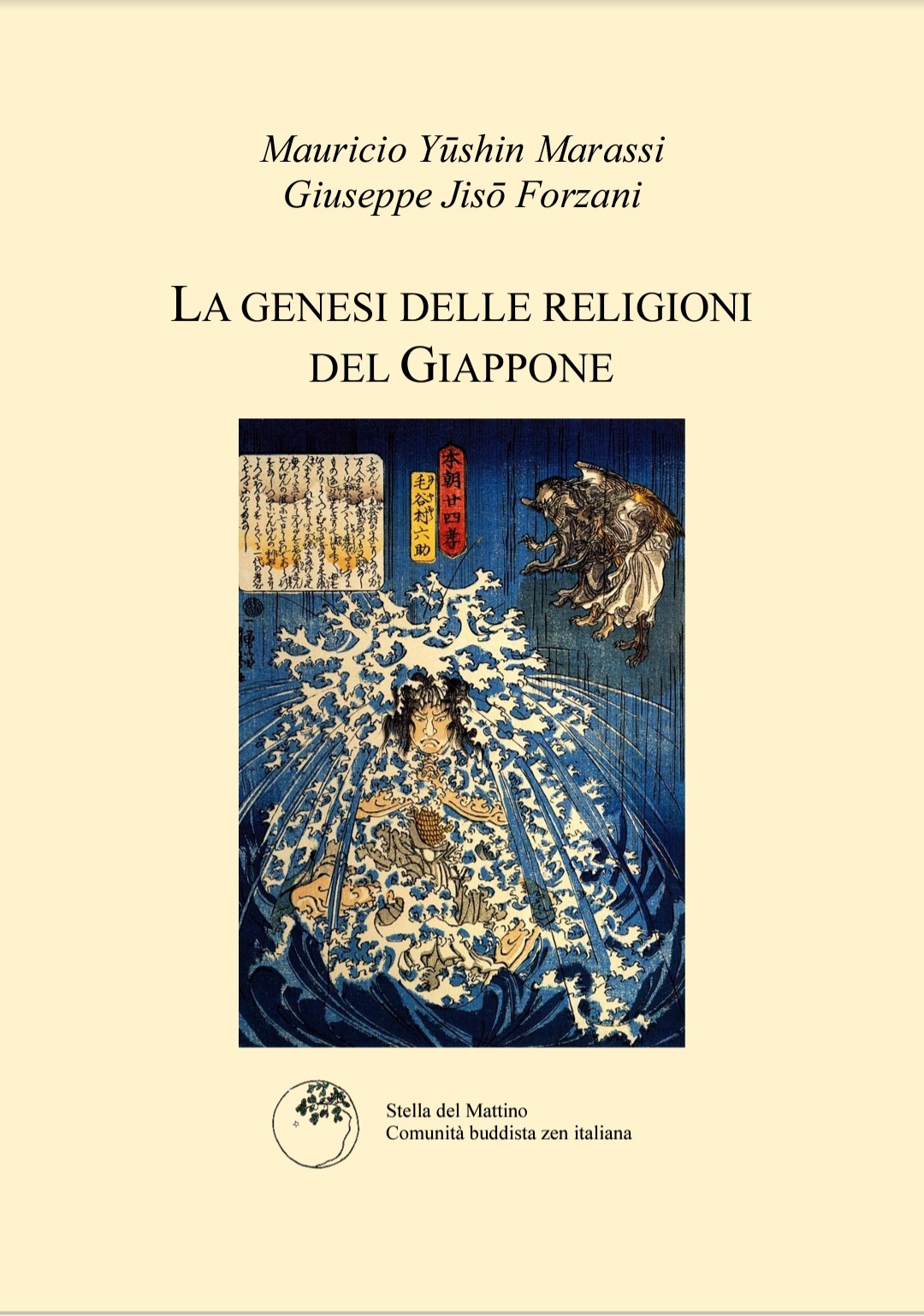Once you start down the path of poverty, there seems to be no limit to how far down you can go. I had been prepared for it by the life I led during the war prior to settling at Antaiji, which was even worse. In 1949, when I first began going out on takuhatsu in Kyoto, the emotion and poverty of the war years had not yet subsided. In that kind of economically difficult environment, the number of fellow practitioners diminished greatly. Finally, there were only two of us left at Antaiji, the leaf flute artist, Yokoyama Sodo and me (1). On top of that, Antaiji had deteriorated so badly during the war that so Sodo had to go out on takuhatsu for funds to refurbish the broken-down temple, while I went around on takuhatsu to supply us with food and also to cover sesshin expenses. I was not only going out on takuhatsu, I also had to take care of the vegetable garden and fertilize it, cut and chop the wood for cooking and heating the bath, plus make our pickle supply, weed and keep up the grounds, clean the temple, and so forth. On top of that, I prepared three meals a day and if I didn’t go out on takuhatsu, I had my laundry to do. So, obviously, I couldn’t blithely go out on takuhatsu like Ryokan and enjoy playing with the children along the way. Far from it, I had to keep my mind on how to juggle doing takuhatsu and caring for the temple. I had to figure out how to cut corners everywhere to get a little extra time for zazen and study. Being careless with even one piece of firewood meant that I would have to take that much more time to chop and cut up wood. Or, if I left a light on needlessly, that meant I had to go out on takuhatsu to pay for it. Cutting back on needless expenditures was absolutely critical for the kind of frugal life we were leading. Our life was always on the edge. When Sawaki Roshi would come back to Antaiji to lead sesshin, I wanted to have a special treat of lotus root on his tray for him, I would go to the market to get some and not have the few yen the greengrocer asked for. Here was this forty-year-old adult having to say, “Oh, my God, if it is going to cost me that much, I will take something else.” We were really in a pitiable state. If I had had a wife and family to take care of, I would have broken down completely. Fortunately, I was single then.v Needless to say, in those days I was never able to purchase any new clothing such as robes. Actually, from the time the war began in 1941, I was never able to buy any new clothing, and everything I had was tattered. Even the covering on my futon was all torn up. Going to bed was like covering myself with the cotton padding that is inside futons. If I got sick for a couple days and had to rest, my whole room seemed to be awash in dust balls of cotton batting. Old newspapers served as toilet paper. Our washcloths looked like some sort of netting, since I used them far beyond the point where they resembled washcloths. Even though they only cost ten or fifteen yen at the time, I couldn’t afford new ones. I did have one bad habit that I just couldn’t give up—smoking. I would collect half-smoked cigarettes left behind by guests and smoke the tobacco in long reed-like pipes—pretty despicable, I admit. In those days, Antaiji looked gruesome. The tatami in my room were completely torn up with straw popping up out of them here and there. And the floor joists supporting the tatami were as soft as cushions. Twice I fell right through the floor. I just took a couple of orange crates that were lying around and used them to prop up the joists and finally, laid the totally torn apart tatami down. The normally white-papered shoji looked like a patchwork quilt with slips of paper pasted over the holes. But what could I do, I had neither the money nor the time to make any proper repairs. Antaiji was truly a dreary and desolate place in those days. This made it imperative that I put all my energy into takuhatsu. Although it would seem to be nothing more than walking around shouting, “Ho~~~!” when you go out on takuhatsu, you are risking your life, One little mistake in judgment and you’re liable to find yourself sprawled out on the street, with one yen coins scattered all around, having been hit by a car. Moreover, the emotional burden is incredible. When an able-bodied male is just walking around begging for money, people look at him with contempt. Enduring that look is far more difficult than enduring even some half-baked job. And in the end, the amount received is barely a pittance. Besides that, while the monk on takuhatsu is the very last person to receive any material benefits when times are good, he is the very first in line to feel any economic downturn. By the mid-fifties, people mostly thought that the war was completely behind them, but for people like us, the war was barely over. Occasionally on late autumn days Sodo and I would trudge back to the temple as the sun was going down and see a praying mantis clinging to the shoji along the west side of the building. The mantises, themselves yellowish brown in color, looked like withered leaves. They would be warming themselves in the last rays of the day. The mantis finishes laying its eggs in late September and from then until about the middle of November, it seems to search out a warm spot, sitting there through chill winds and showers as though just waiting for the end to come. I always got a lump in my throat when I came across a praying mantis in the late fall. With all worldly connections cut off, just living the whole of its life by itself, breathing in and out and clinging there, not moving, waiting for death—somehow the image of that mantis at a dilapidated temple at the end of autumn was equally a picture of us. Sodo, too, must have been deeply moved by this, because he composed the following verse. Autumn mantis clinging to the white paper I glued to the shoji where did it come from and where did it go? These sad and lonely thoughts came and went in our hearts, but it isn’t really right to use the plural “in our hearts” here. Each of us had to bear his own life and in his own heart. Sodo was living out his life, and I was living out mine. We were side by side in this life at Antaiji, and at the same time, each of us was completely alone. Such thoughts came and went in each of us. They were part of the scenery of Sodo’s life of shikantaza, as they were for me. Precisely because takuhatsu was a part of our overall life centered around sitting zazen, it was a life of entrusting our lives to the bowl completely. If there had been no zazen and only begging, my life would have been nothing more than a pitiable life of poverty (2).
Notes:
1) Yokoyama Sodo Roshi, (1904~ 19 ). Yokoyama Roshi was always interested in poetry and music. After he left Antaiji, he moved to Komoro in Nagano Prefecture and home of Shimazaki Toson, a famous Japanese writer and poet. A park was named after Toson and Yokoyama Roshi lived there during the day and did zazen. In his later years, Yokoyama Roshi’s’ takuhatsu consisted of writing poetry and musical compositions, for which visitors strolling through the park would donate money. He became well known for his unconventional life and his flute-playing and was occasionally to be seen on national television.
2) During this period of his life, Roshi was single, although he had been married twice before becoming a monk. His first wife died of tuberculosis when roshi and his wife were in their mid-twenties and his second wife died in childbirth (along with the child) when roshi was in his late twenties.
Se volete, lasciate un commento.
You must be logged in to post a comment.







